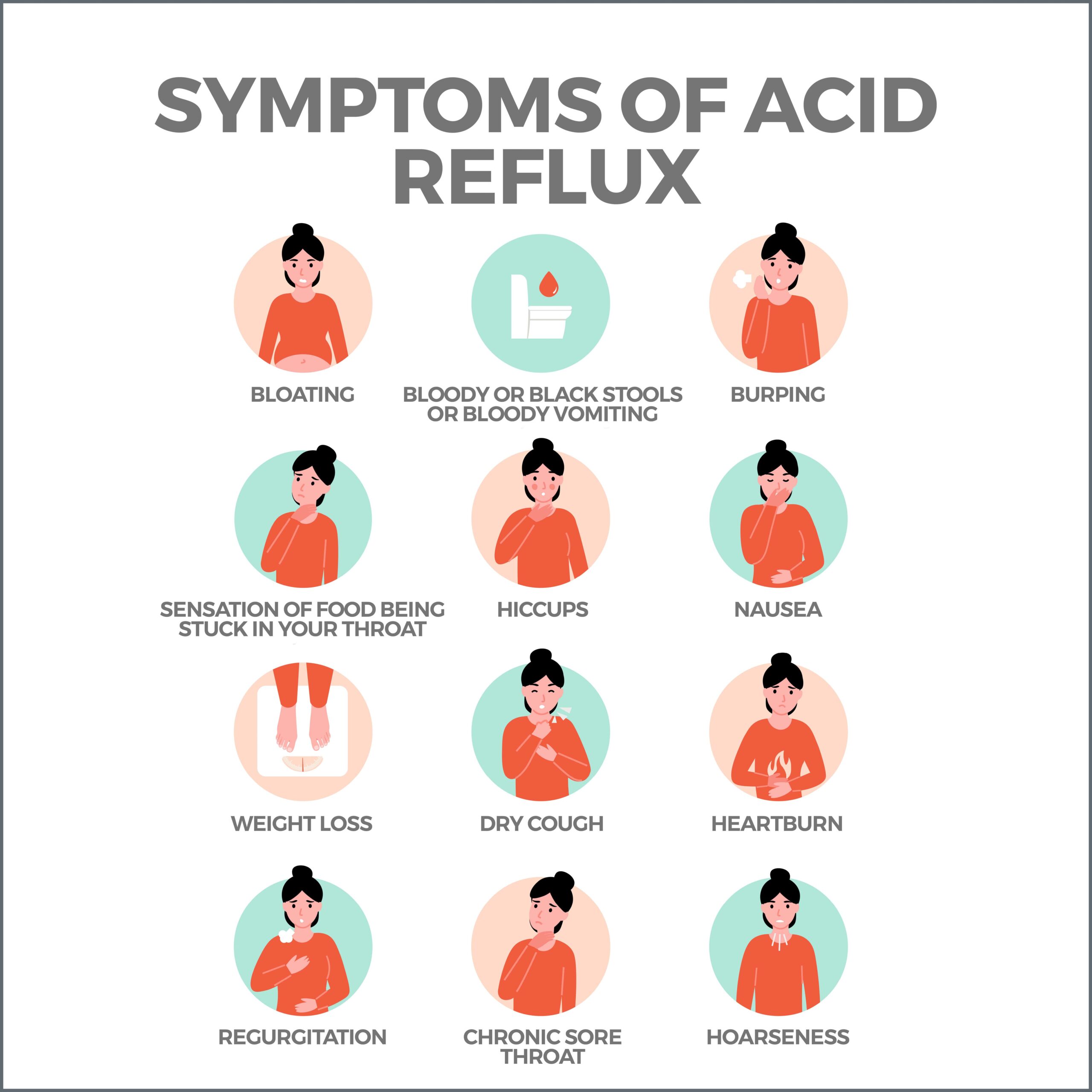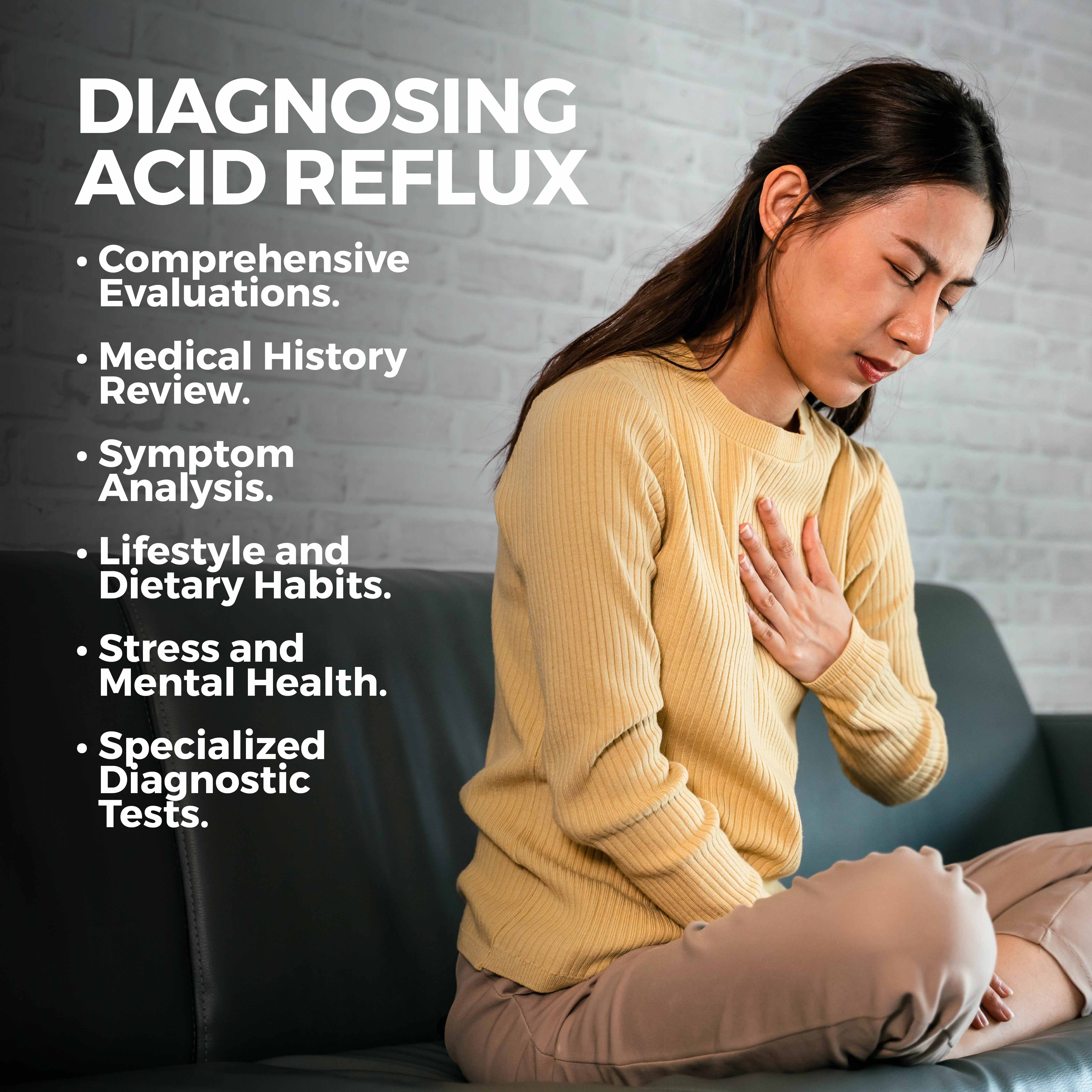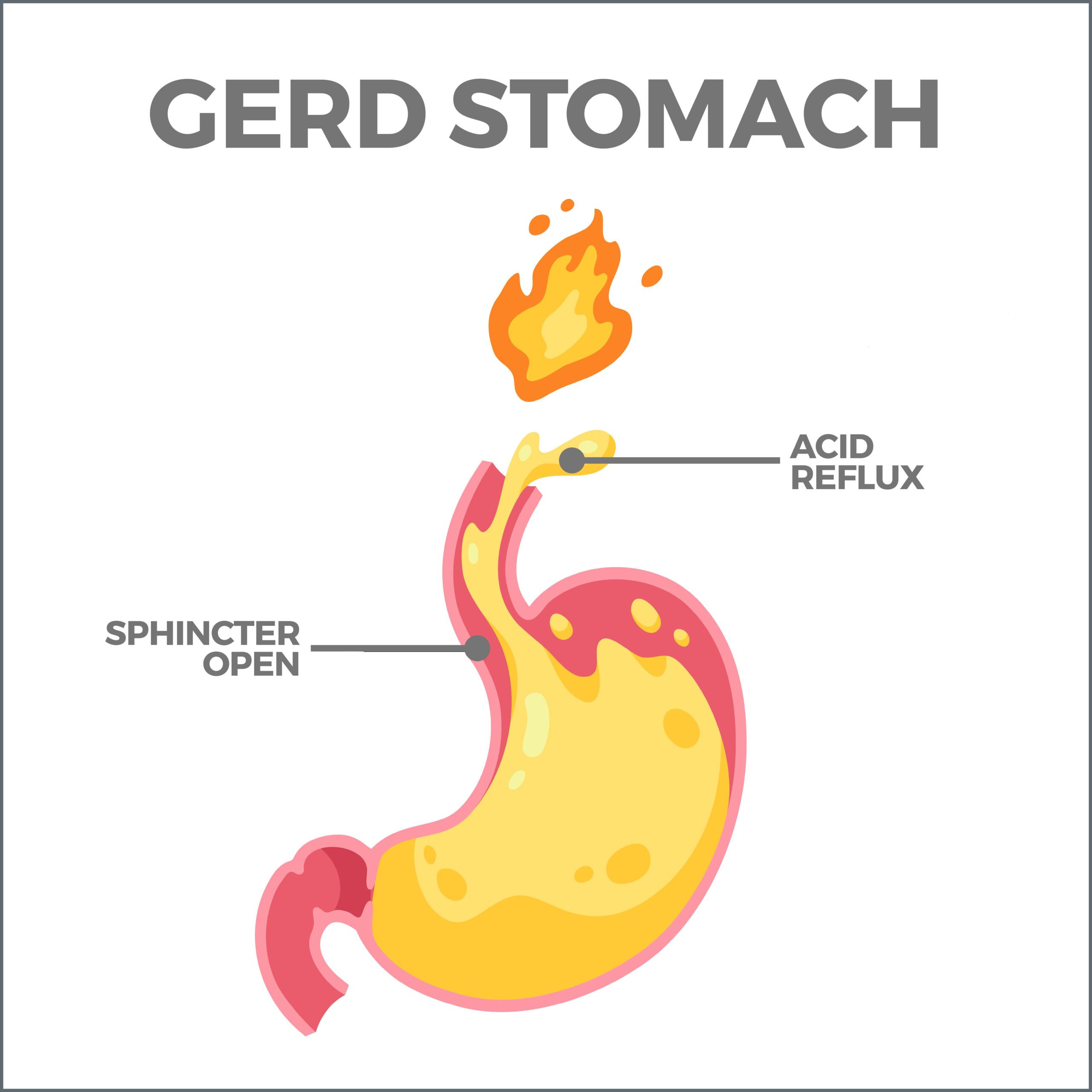
Acid Reflux
After a big meal, we’ve all had that uncomfortable feeling, making us reach for an antacid and wish we hadn’t had that extra helping. That burning sensation in your chest might be more than an after-meal discomfort – it could be acid reflux. When it’s occasional, it’s easily dismissed. But when it’s frequent, it’s a signal your body is sending that should not be ignored.
Signs of Acid Reflux
Acid reflux, or gastroesophageal reflux disease (GERD), commonly affects many people worldwide. It occurs when the sphincter muscle at the lower end of your esophagus relaxes at the wrong time, allowing stomach acid to back up into your esophagus. Here are some more details about the symptoms:
- Persistent Heartburn: This is the most common symptom of acid reflux. It’s a burning pain or discomfort that may move from your stomach to your abdomen or chest or even into your throat.
- Acid regurgitation: The regurgitation of food or sour liquids is another common symptom. You might experience a sour or bitter taste in the back of your mouth or feel like you’re repeatedly burping food.
- Difficulty Swallowing (dysphagia): Over time, the continuous cycle of damage and healing can lead to esophageal scarring, resulting in difficulty swallowing. This can be alarming and uncomfortable.
- Lump in Your Throat: A globus sensation, often described as a ‘lump in the throat,’ is a common symptom reported by people with gastroesophageal reflux disease (GERD), more commonly known as acid reflux. This sensation can cause discomfort and sometimes anxiety, as it might make swallowing difficult or uncomfortable.
- Frequent Burping or Hiccups: Burping and hiccups can be caused by swallowing air during eating or drinking, which then becomes trapped in the stomach. When the stomach acid encounters this trapped air, it can lead to frequent burping or hiccups.
- Bloating: Some people may experience a feeling of abdominal fullness or bloating. This can result from an increased amount of gas and fluids in the stomach from swallowing air.
- Unexplained Weight Loss: If acid reflux is severe, it can lead to poor absorption of nutrients from your diet, resulting in weight loss. This may, over time, lead to malnutrition and other health issues.

Besides these symptoms, some people may experience a chronic cough, laryngitis, disrupted sleep, or even respiratory problems like asthma. The symptoms can worsen after eating a large meal or lying down immediately.
While occasional acid reflux is common and not a cause for alarm, chronic acid reflux can lead to severe complications.
Diagnosing Acid Reflux
Accurate diagnosis is crucial, especially those involving the complex gastrointestinal tract. Acid reflux, for instance, isn’t just a condition – it’s also a symptom. It can signal underlying problems, from something as simple as poor dietary habits to more severe conditions like gastric ulcers or even esophageal cancer.
Comprehensive Evaluations: When faced with recurrent symptoms of acid reflux, a gastroenterologist can help piece together the puzzle of your digestive health. This process often begins with a comprehensive evaluation – a critical step beyond simply reviewing your symptoms. This assessment dives deeper into various facets of your life that could impact your gut health.
Medical History Review: Reviewing your medical history is the backbone of this evaluation. Your gastroenterologist will seek to understand past medical conditions, surgeries, or long-term medications that could influence your digestive system. They’ll also ask about your family’s medical history, as certain gastrointestinal conditions, such as gastroesophageal reflux disease (GERD) and stomach cancer, can be genetic.
Symptom Analysis: Next comes an in-depth discussion about your symptoms. Your gastroenterologist will want to know your acid reflux episodes’ severity, frequency, and duration. Do your symptoms worsen after meals or when lying down? Is there a particular food or drink that triggers an episode? Such details can provide clues about the possible triggers or underlying conditions.
Lifestyle and Dietary Habits: Gastroenterologists recognize that what we eat and how we live can profoundly impact our gut health. They might ask about your consumption of common acid reflux triggers like coffee, alcohol, spicy foods, or carbonated drinks. They’ll want to know if you smoke or are exposed to second-hand smoke, which can worsen acid reflux.
Physical activity levels, sleep patterns, and body weight might also be discussed, as sedentary habits, poor sleep, and obesity are known risk factors for acid reflux.
Stress and Mental Health: Gastroenterologists increasingly recognize the role of stress and mental health in digestive disorders. High-stress levels, anxiety, and depression can exacerbate acid reflux symptoms. They may inquire about your stress levels, coping mechanisms, and diagnosed mental health conditions.
This comprehensive evaluation is not a one-time conversation. As your treatment progresses, your gastroenterologist will continue to assess your response to treatments, any changes in symptoms, and any shifts in your lifestyle or overall health.
By conducting such a thorough evaluation, your gastroenterologist can develop a nuanced understanding of your acid reflux within your overall health and life circumstances. This comprehensive insight guides them in crafting a personalized treatment plan tailored to their needs.

Specialized Diagnostic Tests
At times, more than preliminary exams will be required to determine the nature and severity of the esophageal problems. When specialized diagnostics are needed, the following examinations are among the most common:
- Endoscopy: This procedure uses an endoscope, a long, thin, flexible tube with a light and camera at the end. It’s usually inserted through the mouth and into the esophagus and stomach while the patient is sedated or under local anesthesia. Endoscopy allows doctors to visualize the lining of the esophagus and stomach in detail. It helps identify signs of damage due to acid reflux, such as inflammation, ulcers, or stricture (narrowing of the esophagus). Doctors can also take biopsies of suspicious areas to look for more specific conditions like Barrett’s esophagus, a precursor to esophageal cancer.
- pH Monitoring: This test, also known as pH-metry, involves placing a small device either at the lower end of the esophagus or in the nose, which then measures the level of acidity (pH) over 24 hours. A high frequency of low pH readings (indicative of acidity) in the esophagus confirms acid reflux. This test can help determine if the symptoms are related to acid reflux and to what extent. It’s also helpful in assessing the effectiveness of acid-reducing medications.
- Manometry: This test evaluates the function of the muscles in the esophagus, including the lower esophageal sphincter (LES) – a ring of muscles at the junction of the esophagus and stomach that acts as a valve to prevent backflow of stomach content. During a manometry test, a thin tube is passed down the esophagus, measuring the strength and coordination of esophageal contractions when you swallow. If these contractions are weak or uncoordinated, it can lead to issues such as difficulty swallowing or increased susceptibility to acid reflux.
Determining the Causes of Acid Reflux
Through these diagnostic procedures, gastroenterologists can identify the root cause of your acid reflux. Perhaps it’s due to a hiatal hernia, where part of your stomach pushes up through your diaphragm, causing acid backflow into your esophagus. It could be gastroesophageal reflux disease (GERD), a more severe form of acid reflux.
Sometimes, it could be peptic ulcers or Barrett’s esophagus, a precursor to esophageal cancer.
By pinpointing the cause, gastroenterologists can confirm the presence of acid reflux and rule out or identify more severe conditions.

Embracing Better Digestive Health
Ignoring acid reflux doesn’t make it go away; it allows it to persist and potentially worsen. Frequent acid reflux is a signal that your body needs help. Gastroenterologists can provide that help. They can accurately diagnose your condition, create a comprehensive treatment plan, and guide you toward better digestive health.
Contact us today! The team of professionals at GastroMD looks forward to working with you. We are one of the leading gastroenterology practices in the Tampa Bay area. We perform many diagnostic procedures using state-of-the-art equipment in a friendly, comfortable, and inviting atmosphere where patient care is always a top priority!



